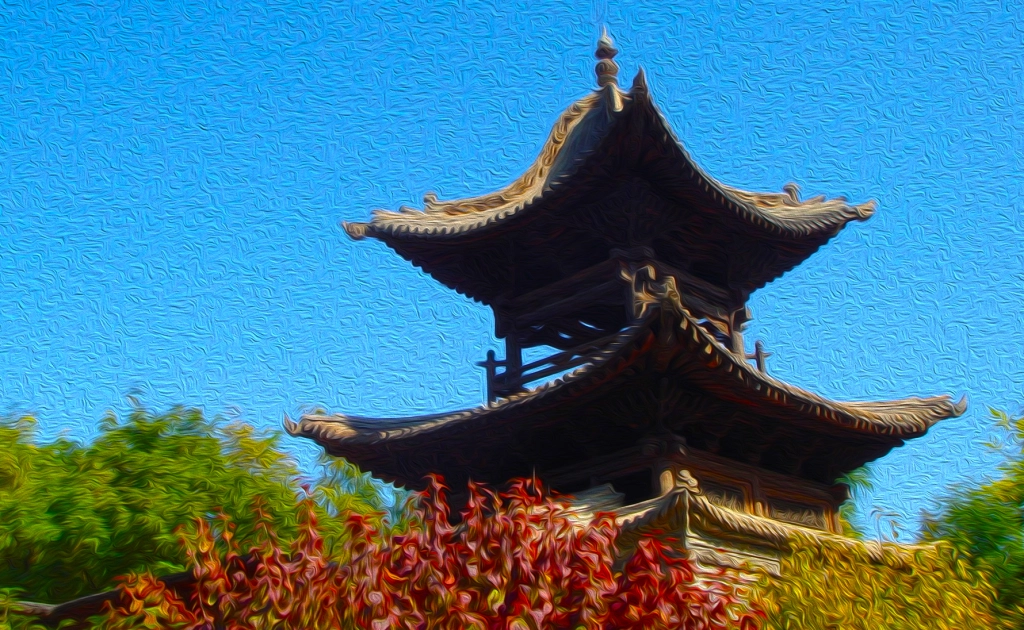To Zhang Ming:
An autumn day, circa 735 AD, Pengze, Jiangxi Province.
To Zhang Ming, the illustrious Zhang, known to the world as Zhang Jiuling, 張九齡, noted poet and Imperial Chinese minister.
An Autumn Day at your grand pavilion looking off into the distance
Watching the twists and turns of rivers and mountains.
Lying down, wring poetry, posting on the wall
Smiling, laughing, and, yes, drinking lots of wine.Here, at Pengze, where every poem makes me
Think of home.
I too, play my lute and tell poems
We two, staying up late, enjoying leisure together.Meng Haoran, [Autumn, Climbing the Pavilion at Zhang Ming’s]
Meng Haoran
Meng Haoran’s time in the limelight was brief, beginning his career late, at the age of 40 or so. He was hectored no doubt by a mother or wife — “Make something of your life,” and so, Meng made his way, by boat, along the mighty Yangtze to the capital, Chang’an. There, Meng Haoran hitched his wagon to the Emperor Xuanzong’s trusted minister, Zhang Jiuling, and the two became fast friends. By all accounts, Zhang did all the pulling, as Meng preferred wine, song, and leisure.

Notes on Translation
Ming is a superlative added to Zhang Jiuling’s family name. An English translation is “illustrious” or “bright” (compare Caesar Augustus). Meng likely chose to imitate the similar title given the Xuanzong, Emperor Ming, our illustrious emperor.
Péngzé refers to the area near Lake Dongting on the Yangtze River. It may also refer to Poyang Lake (also called Pengli, 彭蠡). Elsewhere (in a poem I have not yet translated) Meng Haroan refers to drinking Pengze wine while wishing goodbye to Zhang Jiuling on his return to the capital.
Haiting, 海 亭. Zhang’s pavilion, in this instance, is tall multi-story structure (and not a garden type). Hai, 海 confuses some translators who choose to say “sea pavilion” when “grand” or “super tall” is intended. Of course, haiting could simply be the name given the structure, as when one refers to the Grand Canyon or Pacific Ocean.
Qin, 琴, a Chinese lute. Poets often accompanied their poetry reading with the playing of an instrument. I imagine this was much like the way Irish folk singers would gather at a home or pub and play a fiddle while singing along to a pint of ale.
Cheers!
Original Chinese Text
海 亭 秋 日 望
委 曲 见 江 山。
染 翰 卧 题 壁
倾 壶 一 破 颜。歌 逢 彭 泽 令
归 赏 故 园 间。
余 亦 将 琴 史
栖 迟 共 取 闲。孟浩然, [秋 登 张 明 府 海 亭]
Haiting qiu ri wang
Wei qu jian jiang shan.
Ran han wo ti bi
Qing hu yi po yan.Ge feng peng ze ling
Gui shang gu yuan jian.
Yu yi jiang qin shi
Qi chi gong qu xian.Meng Haoran, Qiu Deng Zhang Ming Fu Haiting












